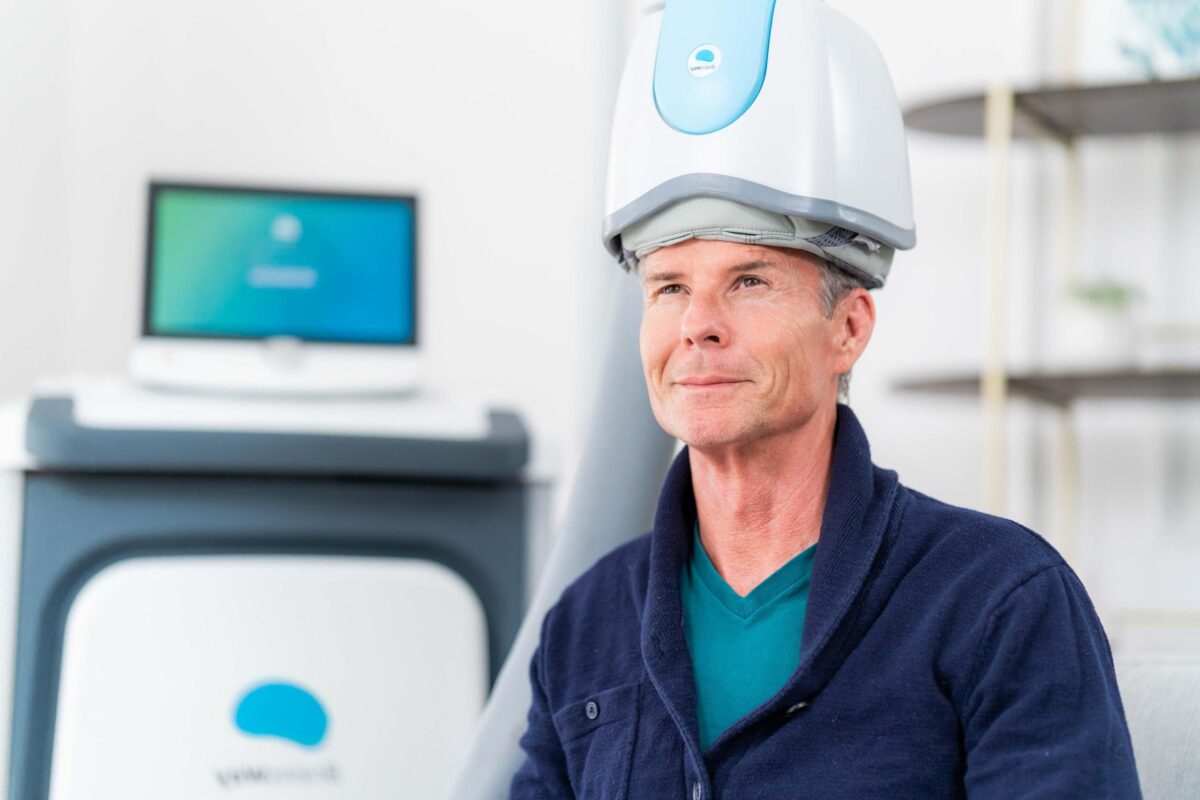Multiple Sclerosis (MS) is a complex, chronic neurological condition that impacts millions of people worldwide. Characterized by the immune system attacking the protective covering of nerve fibers, MS disrupts communication between the brain and body, leading to symptoms like fatigue, muscle weakness, pain, and cognitive issues. While treatments exist to manage symptoms, many individuals continue to seek innovative therapies to improve their quality of life.
One emerging option is Transcranial Magnetic Stimulation (TMS), a non-invasive, evidence-based treatment designed to stimulate specific areas of the brain. TMS has shown promise in addressing neurological challenges, making it a potential game-changer for individuals with MS. This article explores how TMS can support those living with MS, its benefits, and what to expect from treatment.
For more information or to discuss how TMS might fit into your care plan, visit Axon Integrative Health’s TMS page.
How Does TMS Work for MS?
TMS uses targeted magnetic pulses to stimulate areas of the brain involved in movement, mood, and cognition. While MS primarily affects the central nervous system, research suggests that stimulating the brain can indirectly alleviate some of the symptoms caused by nerve damage.
- Enhancing Neuroplasticity: TMS promotes the brain’s ability to rewire itself, compensating for damaged neural pathways.
- Regulating Overactive Circuits: MS can cause abnormal activity in certain brain regions. TMS helps to rebalance these circuits.
- Improving Cortical Excitability: TMS enhances the responsiveness of brain areas involved in muscle control and cognitive function, reducing common MS symptoms.
Common MS Symptoms TMS May Address
While MS presents differently in each individual, many experience similar challenges. TMS has shown potential in improving the following areas:
- Fatigue: One of the most disabling symptoms of MS, fatigue, can be alleviated by stimulating brain areas linked to energy regulation.
- Motor Function: TMS can target the motor cortex to improve muscle strength, coordination, and mobility.
- Cognitive Challenges: MS often causes issues like memory loss and difficulty concentrating. TMS promotes better cognitive performance by enhancing neural connectivity.
- Mood Disorders: Depression and anxiety are common in MS patients. TMS, already FDA-approved for depression, has proven effective in stabilizing mood.
- Pain Management: By modulating pain pathways in the brain, TMS may help reduce chronic pain associated with MS.
Why Consider TMS for MS?
For many individuals with MS, traditional treatments like medications and physical therapy are essential but not always sufficient. TMS offers several unique benefits:
- Non-invasive: Unlike surgical interventions, TMS does not require incisions or anesthesia.
- Drug-free: TMS avoids the side effects associated with many MS medications, such as fatigue, nausea, or mood swings.
- Complementary: TMS can be used alongside existing therapies, enhancing their effectiveness.
- Customizable: Each TMS session is tailored to the individual’s symptoms and goals, ensuring personalized care.
The Benefits of TMS for MS
If you’re considering TMS for MS, it’s essential to understand the potential advantages it offers:
1. Targeted Treatment
TMS is highly precise, focusing on specific brain regions associated with MS symptoms. This allows for effective symptom management without affecting other areas of the body.
2. Minimal Side Effects
Unlike medications, TMS’s side effects are rare and mild, typically limited to slight scalp discomfort or a mild headache after sessions.
3. Enhanced Quality of Life
By improving motor function, cognition, and mood, TMS can empower individuals with MS to engage more fully in daily activities.
4. Long-term Benefits
While each individual’s experience varies, many report lasting improvements after completing a TMS course, particularly when combined with other therapies.
What to Expect During TMS Treatment
TMS is straightforward and convenient, making it accessible to individuals with MS.
- Initial Consultation: Treatment begins with a detailed assessment to determine eligibility and tailor a personalized plan.
- Treatment Sessions: Each session lasts between 30–60 minutes, during which a magnetic coil delivers gentle pulses to the scalp.
- Frequency: Most patients undergo TMS five days a week for several weeks to achieve optimal results.
- Post-Treatment: There’s no downtime, so you can return to your daily routine immediately after each session.
For questions about the TMS process or to schedule a consultation, reach out to Axon Integrative Health.
How TMS Fits Into a Comprehensive MS Care Plan
TMS works best as part of a broader treatment strategy. At Axon Integrative Health, TMS is integrated with other therapies to address the diverse needs of MS patients. These include:
- Physical Therapy: Improves strength and mobility, enhanced by TMS’s effects on motor function.
- Cognitive Training: TMS boosts the brain’s capacity for learning and memory, complementing cognitive exercises.
- Stress Management: Relaxation techniques combined with TMS’s mood-stabilizing effects can significantly improve emotional well-being.
Key Considerations Before Starting TMS
- Duration: TMS requires a commitment to multiple sessions for the best results.
- Eligibility: While TMS is safe for most individuals, it may not be suitable for those with implanted medical devices.
- Patience: Improvements are often gradual, building over the course of treatment.
Research on TMS and MS
Emerging studies highlight TMS’s potential for managing MS symptoms. For example:
- A 2020 study found that TMS improved motor function and reduced fatigue in MS patients after six weeks of treatment.
- Research published in Frontiers in Neurology showed significant cognitive improvements in individuals with MS who underwent TMS.
- Another study noted reduced depression and anxiety symptoms in MS patients treated with TMS, further supporting its holistic benefits.
These findings underscore the importance of TMS as an evolving tool in MS care.
Start Your TMS Journey with Axon Integrative Health
Living with MS can be challenging, but innovative treatments like TMS offer new hope. By targeting the brain’s ability to heal and adapt, TMS provides a non-invasive, personalized option to manage symptoms and enhance quality of life.
At Axon Integrative Health, the team is dedicated to helping individuals explore cutting-edge solutions tailored to their needs. Whether you’re seeking to improve motor function, boost cognitive abilities, or manage mood disorders, TMS can play a pivotal role in your journey.
To learn more about TMS for MS, visit Axon Integrative Health’s TMS page or contact the team directly to schedule a consultation. Take the first step toward a brighter, more empowered future.





